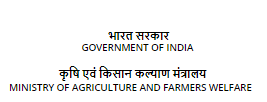Updated Equine Influenza Vaccine
Technology Details:
Equine influenza - commonly known as ‘Horse Flu’ - is a viral disease of horses caused by the Equine Influenza Virus (EIV) subtype H3N8. The disease resulted in heavy morbidity and led to huge economic loss. This vaccine is intended for immunization of horses, mules and donkeys. This vaccine will help in controlling influenza in equines during exigency and thus improves the economic status of the equine owner and the state.
To control the disease, an inactivated aluminum hydroxide adjuvant vaccine was developed by NRCE consequent to 1987 outbreak using Ludhiana/87 isolate which belonged to the pre-divergent lineage of the EIV isolates. For making the vaccine a recommended OIE strain i.e. indigenous equine influenza virus {A/eq/Katra-Jammu/06/08 (H3N8)} belonging to Clade 2 of Florida sublineage, was used. The vaccine was made from the seed stock of EIV grown in bulk in 9-11 days old embryonated chicken eggs and the allantoic fluid was harvested, purified by ultracentrifugation and inactivated by formalin. For vaccination, aseptically administer one 1-mL dose intramuscularly when animals are above 6 months of age followed by a booster vaccine after 4-5 weeks and repeated annually or after monitoring the titers by Haemagglutination inhibition assay (HI titres below 64- repeat vaccine). The vaccine was tested as per the standard procedures laid down by OIE, European Pharmacopoeia and European Medicines Agency (EMEA) and showed a protective immune response against EIV.


